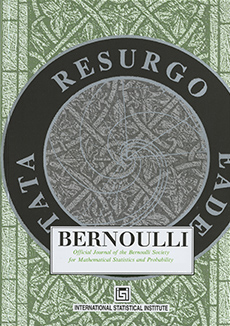Abstract
The concept of the autoregressive (AR) sieve bootstrap is investigated for the case of spatial processes in $\mathbb{Z}^{2}$. This procedure fits AR models of increasing order to the given data and, via resampling of the residuals, generates bootstrap replicates of the sample. The paper explores the range of validity of this resampling procedure and provides a general check criterion which allows to decide whether the AR sieve bootstrap asymptotically works for a specific statistic of interest or not. The criterion may be applied to a large class of stationary spatial processes. As another major contribution of this paper, a weighted Baxter-inequality for spatial processes is provided. This result yields a rate of convergence for the finite predictor coefficients, i.e. the coefficients of finite-order AR model fits, towards the autoregressive coefficients which are inherent to the underlying process under mild conditions. The developed check criterion is applied to some particularly interesting statistics like sample autocorrelations and standardized sample variograms. A simulation study shows that the procedure performs very well compared to normal approximations as well as block bootstrap methods in finite samples.
Citation
Marco Meyer. Carsten Jentsch. Jens-Peter Kreiss. "Baxter’s inequality and sieve bootstrap for random fields." Bernoulli 23 (4B) 2988 - 3020, November 2017. https://doi.org/10.3150/16-BEJ835
Information





